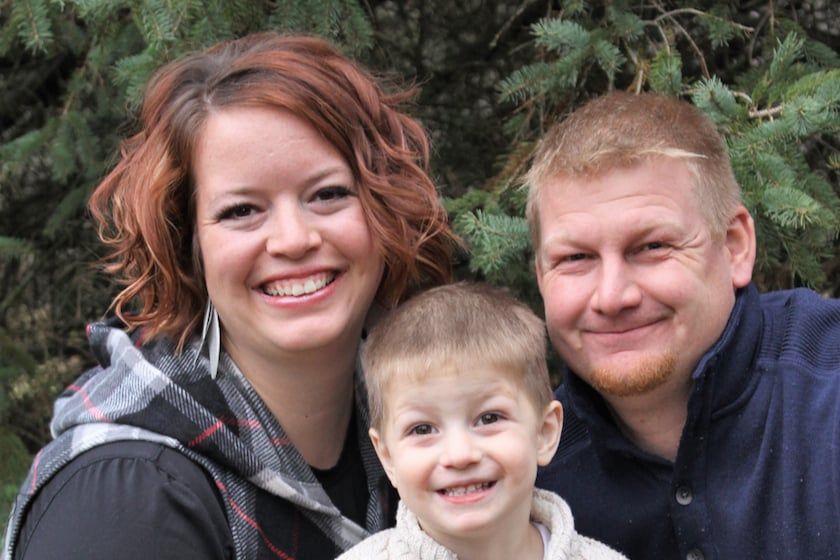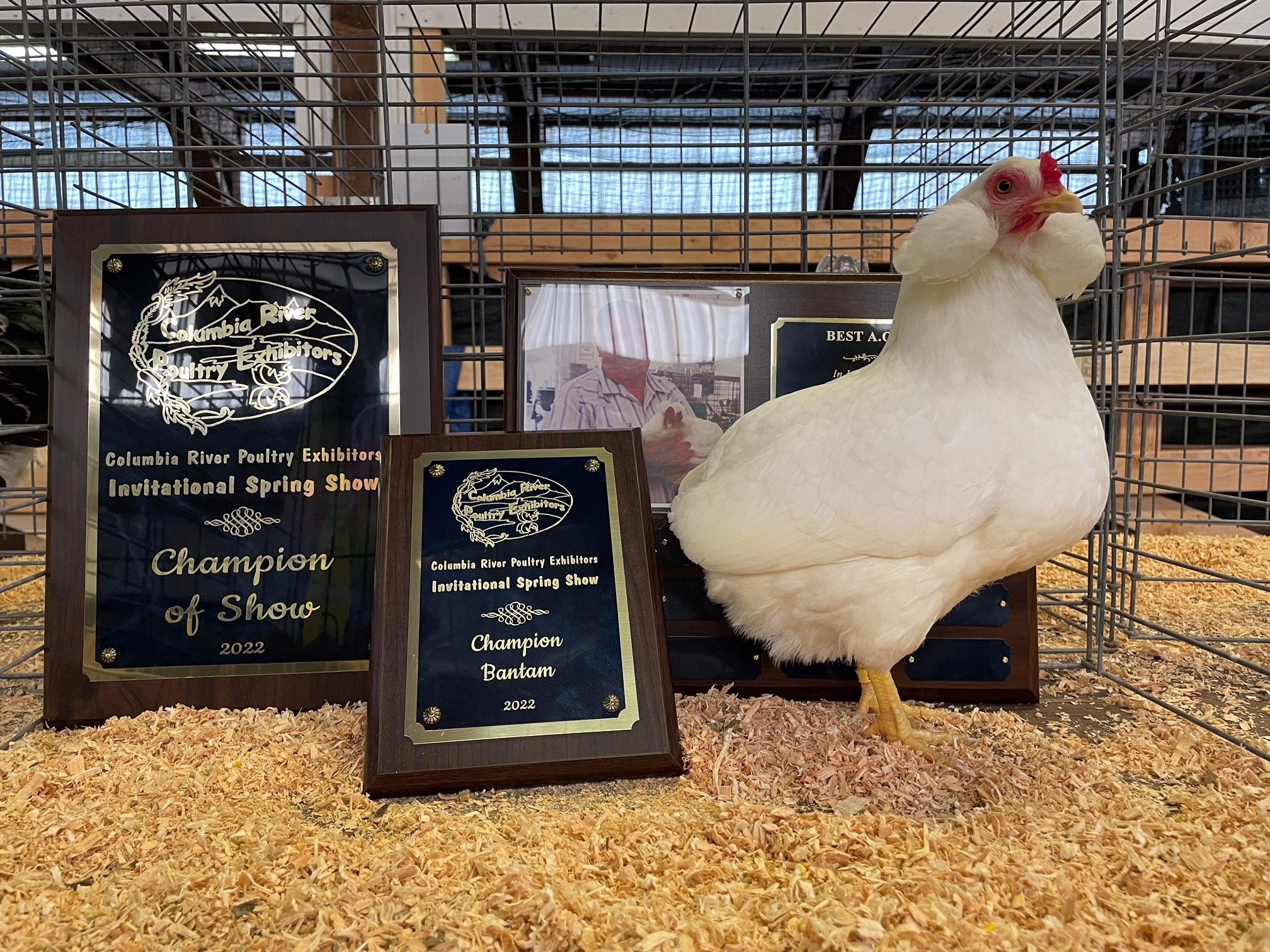The Importance of Supporting Juniors
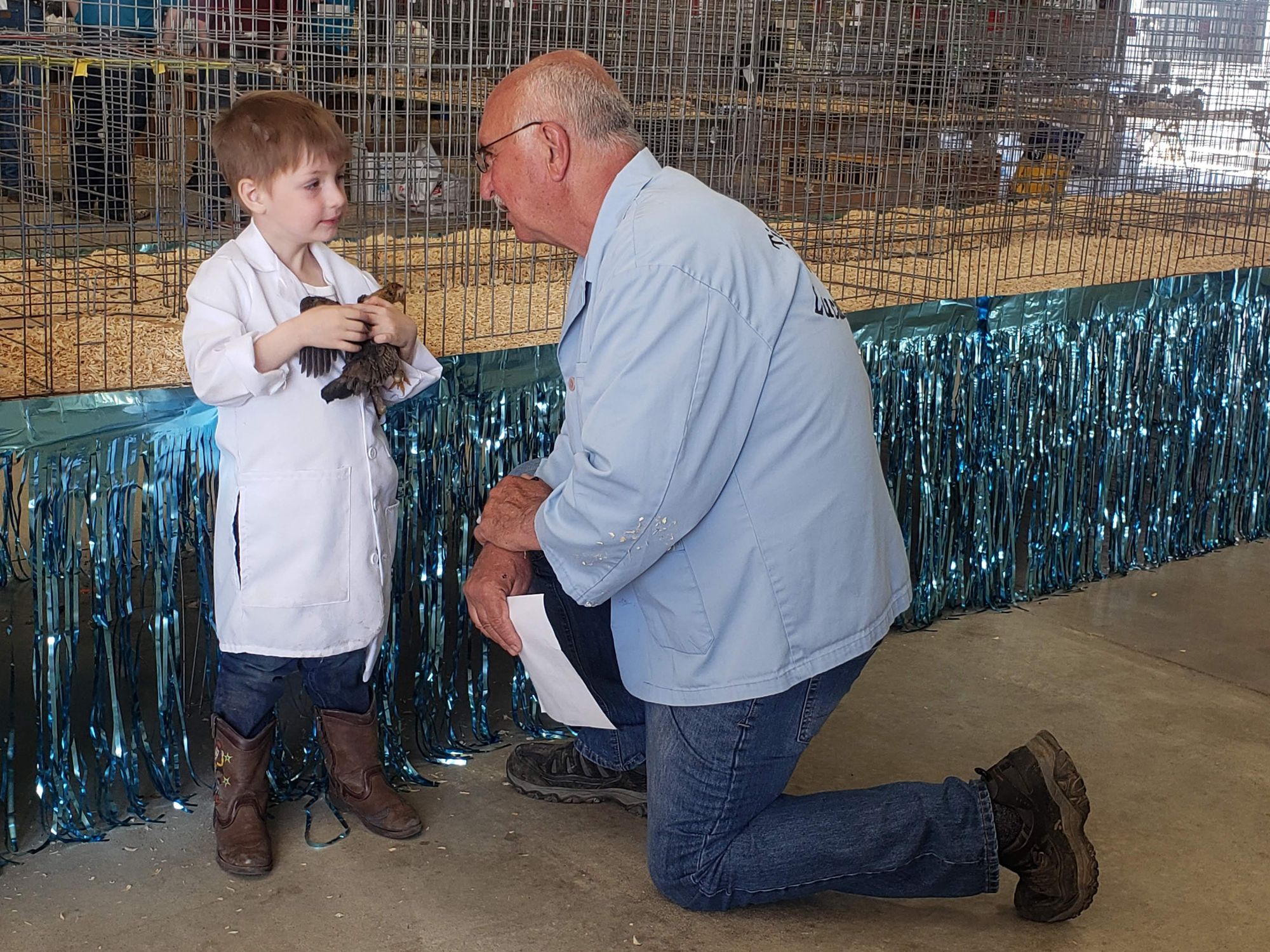

It is a widely agreed upon fact in the exhibition poultry hobby that “juniors are the future of the fancy.” More and more shows have junior divisions, showmanship, and some have other contests for them. But how do we truly get them to being that future?
Mentors share their love
A deep love for the birds is important, but we veterans in the hobby must also provide quality mentorship and education in all aspects of standard bred poultry and their exhibition.
Many of us as adults look back on how we got involved in this hobby and share a name, or two, of individuals who took us under their wings. They taught us as much as they could about the birds, and breeding. They guided us in the art of exhibition, the importance of the standards, and more.
One name we share is Tim Bowles. Tim is an APA judge and breeder from southern Ohio who watched us both grow up in the hobby. Over the years he has taken the time to look over our birds and be a sounding board as we developed our “eyes” in what to look for as we culled and selected breeders—we tried to learn as much as we could as we started judging fairs and junior shows.
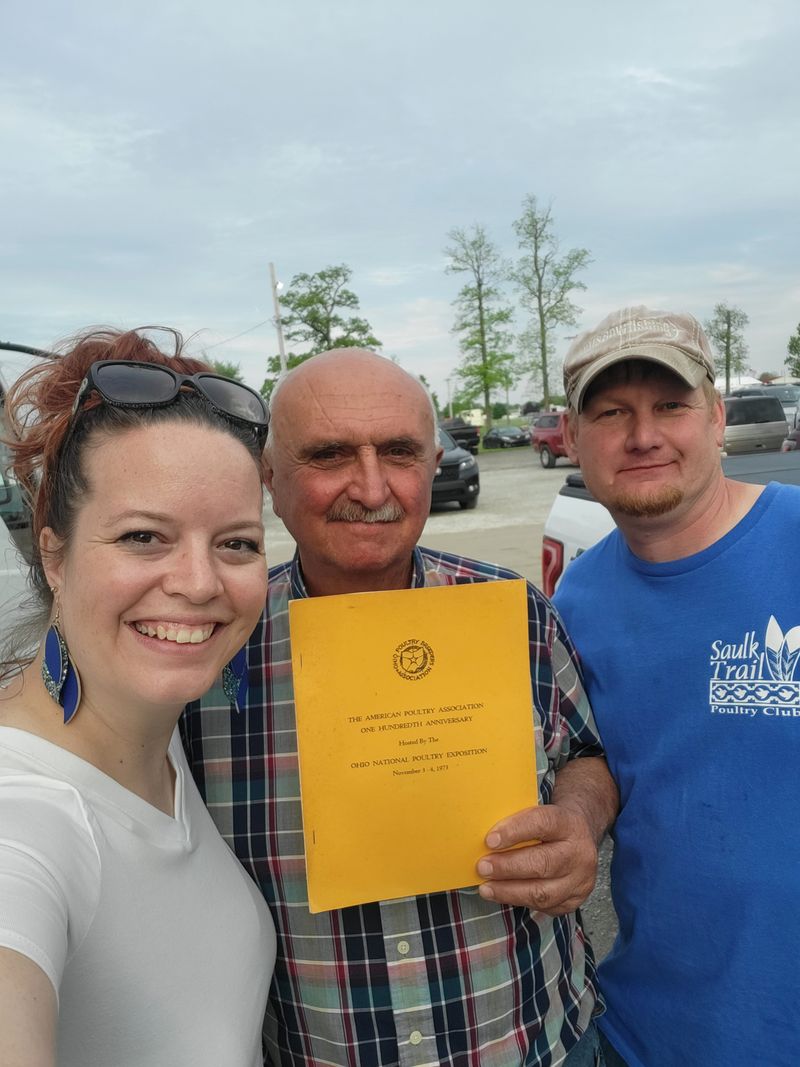
Tim is a huge part of why both of us went for, and succeeded in getting, our APA judges licenses. He encouraged us to do it when we were juniors ourselves. Even today as adults, we still go to him for advice on our birds, understanding historical premise for the way things have developed over time, running our show, and navigating the hobby as adults. His guidance and care for us, and now our son, is so special to us both.
Now, it is our turn to do the same and to reach out and offer input, offer guidance, help them learn the standard and how to improve their birds. All experienced fanciers can offer that mentorship to juniors when the opportunity arises.
Finding a mentor
On the flip side of this, if you are a junior, or a parent trying to help a junior find a mentor, there are several options for you. Mentorship isn’t forced and the first adult you find who works in your junior’s breed won’t necessarily a good mentor. The relationship must build and grow into mentorship over time.
Start with the breed club of what the junior is interested in. Reach out and join the club, ask your district director for connections with breeders in your area, and work from there. Some breed clubs, like the Dominque Club of America, have developed their own support system for juniors within their club.
If your junior is interested in waterfowl, consider joining the International Waterfowl Breeders Association. They cover all breeds of waterfowl. Call Ducks and Sebastopol Geese have their own specific breed clubs as well.
Attend APA and ABA sanctioned shows in your area and use the exhibitor list to find those showing your breed. Hang out in the aisles near those birds while prep work is being done in the morning before judging, and in the afternoon as feeding takes place. Introduce yourself and start a conversation to begin making connections.
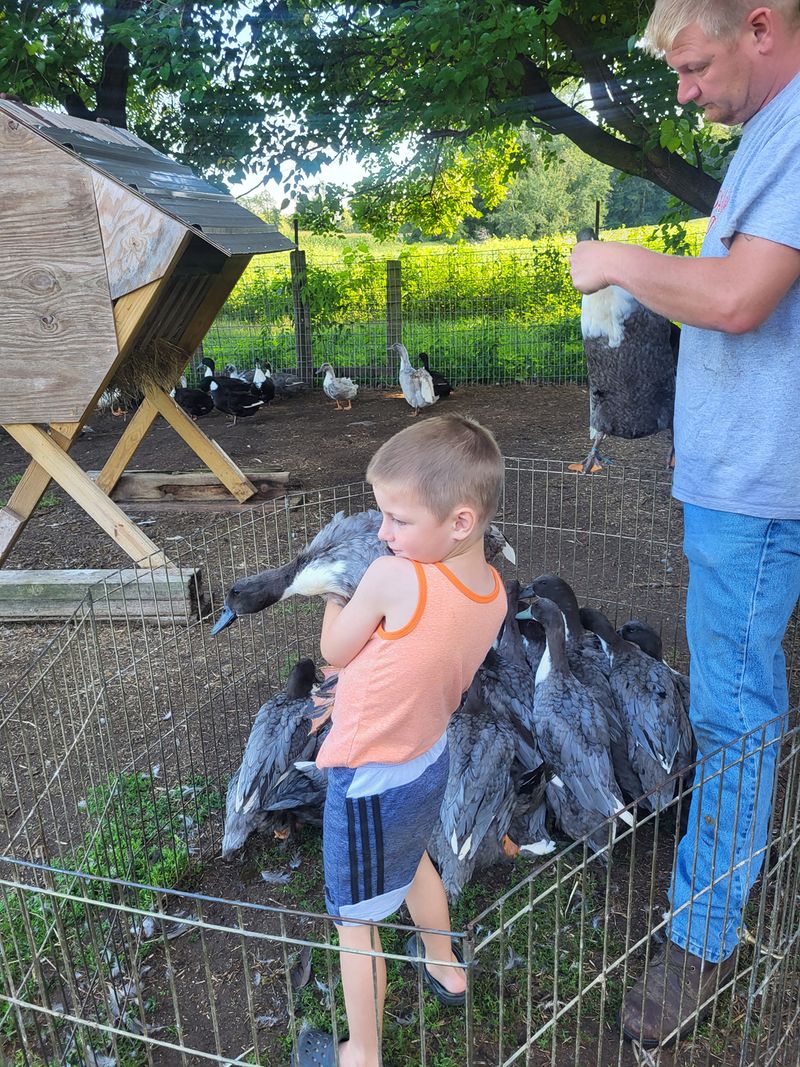
Rely on accurate information
We often find ourselves inundated with information online, yet it can be difficult to determine the accuracy and quality of information being presented.
Some websites can provide a wealth of information, such as the websites of the American Poultry Association (amerpoultryassn.com/ ) and the American Bantam Association (bantamclub.com/ ). Both have educational materials and books that can be ordered.
The Standards are the most important of those books, as they give you the details of what each of the recognized breeds and varieties should look like, a list of terminology, disqualifications, and the scale of points used in judging. These are invaluable tools for anyone in the exhibition poultry hobby.
On Facebook, there is a group called Poultry Keepers 360 that is a gem of information about poultry husbandry in all facets. It touches on exhibition here and there, but really focuses on accurate information about raising standard-bred poultry efficiently and effectively. They also share their webinars on their Poultry Keepers 360 YouTube.com channel.
Another Facebook group to explore is the 4H & Intro to Exhibition Poultry group. This group was formed during the pandemic when in-person meetings and seminars weren’t an option. There are videos available to address various topics such as bird selection, applying the standard to your birds, showmanship, what judges are looking for, and more.
The Youth Exhibition Poultry Association, or YEPA, (youthexhibitionpoultry.org) focuses specifically on juniors in the hobby. YEPA provides educational material that is accurate and easy to work with, including educational workbooks that juniors can work their way through after joining, as well as educational material on the website itself. YEPA, unlike 4-H, does not have a minimum age to join—it has members as young as three years old doing showmanship and toting their birds around junior shows.
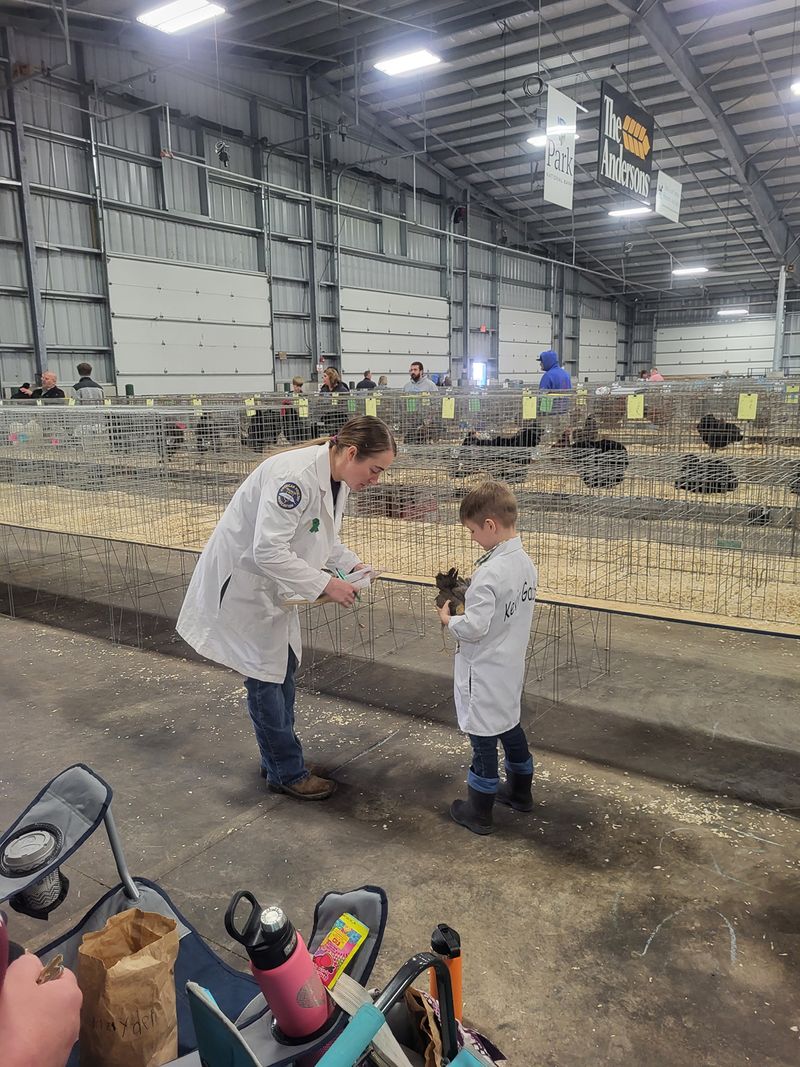
There are other sites and groups that have good information too, but we recommend these first to new juniors and families due to the accuracy and quality of the content. Our hobby has always been about relationships, lifelong friendships, and fun with our birds.
While everyone likes to win, most can agree that feeling confident in what you know and your support system are most important. Using accurate information, building relationships with others in your breed, and gaining a mentor are what we see as being key to growing success in the hobby for juniors, the future of the fancy.
About the Authors
Amy and Lucas Gabbard and their son Kevin live in Michigan. They are long time breeders and exhibitors of multiple species and breeds of standard bred poultry. They run a yearly show, are licensed APA judges, and also judge many county fairs. Amy is national director for YEPA.
Tags:The APA Back Story

Chicken Whisperer is part of the Catalyst Communications Network publication family.


